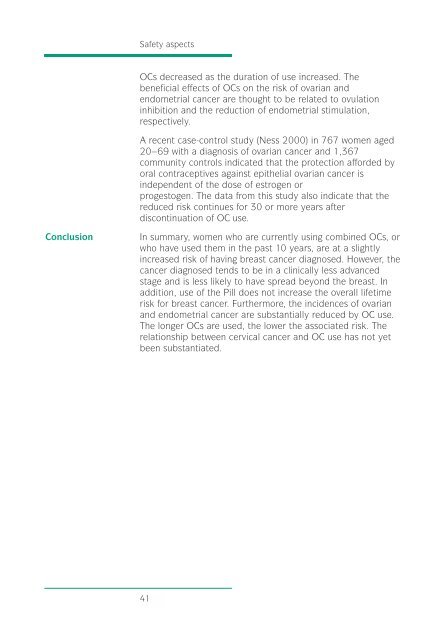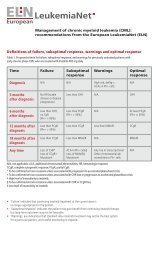Gracial ProdMonograph_cover - epgonline.org
Gracial ProdMonograph_cover - epgonline.org
Gracial ProdMonograph_cover - epgonline.org
Create successful ePaper yourself
Turn your PDF publications into a flip-book with our unique Google optimized e-Paper software.
Safety aspects<br />
OCs decreased as the duration of use increased. The<br />
beneficial effects of OCs on the risk of ovarian and<br />
endometrial cancer are thought to be related to ovulation<br />
inhibition and the reduction of endometrial stimulation,<br />
respectively.<br />
A recent case-control study (Ness 2000) in 767 women aged<br />
20–69 with a diagnosis of ovarian cancer and 1,367<br />
community controls indicated that the protection afforded by<br />
oral contraceptives against epithelial ovarian cancer is<br />
independent of the dose of estrogen or<br />
progestogen. The data from this study also indicate that the<br />
reduced risk continues for 30 or more years after<br />
discontinuation of OC use.<br />
Conclusion<br />
In summary, women who are currently using combined OCs, or<br />
who have used them in the past 10 years, are at a slightly<br />
increased risk of having breast cancer diagnosed. However, the<br />
cancer diagnosed tends to be in a clinically less advanced<br />
stage and is less likely to have spread beyond the breast. In<br />
addition, use of the Pill does not increase the overall lifetime<br />
risk for breast cancer. Furthermore, the incidences of ovarian<br />
and endometrial cancer are substantially reduced by OC use.<br />
The longer OCs are used, the lower the associated risk. The<br />
relationship between cervical cancer and OC use has not yet<br />
been substantiated.<br />
41
















